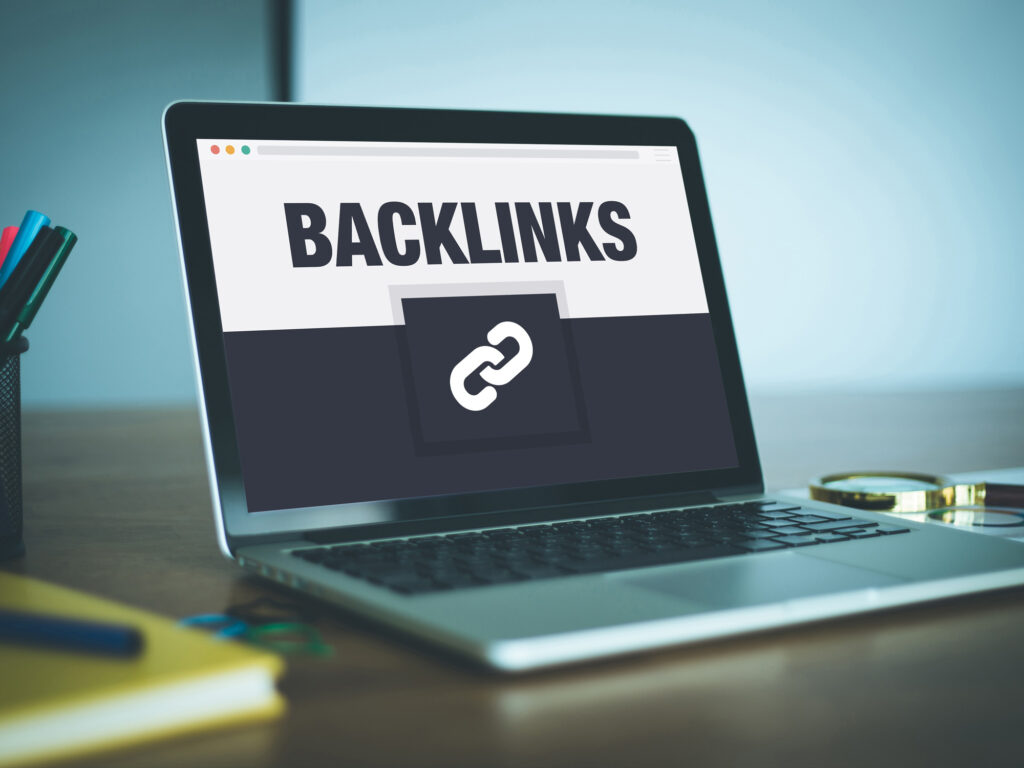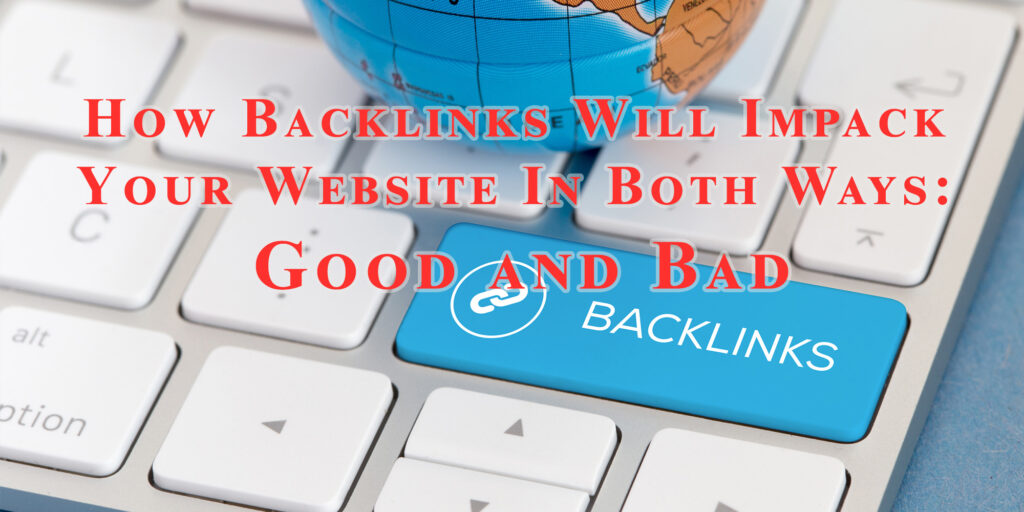In the ever-evolving landscape of digital marketing and search engine optimization (SEO), backlinks have long been hailed as a critical factor in determining a website’s ranking on search engine results pages (SERPs). A backlink, simply put, is a link from one website to another. While the allure of boosting one’s website ranking through backlinks is undeniable, there exists a dark side to this practice that many website owners overlook or underestimate. In this article, we’ll delve into how backlinks, if not handled correctly, can have a negative impact on your website.
It’s common practice for website owners and marketers to seek out backlinks as a means to bolster their site’s visibility and authority in the eyes of search engines like Google. However, in their quest for higher rankings, many resort to purchasing backlinks from third-party vendors or engaging in link-building schemes that promise quick results. While this may seem like a shortcut to success, it often leads to more harm than good.
One of the primary dangers associated with buying backlinks is the lack of control over the quality and relevance of the linking sites. In an effort to maximize profits, some vendors may place your website links indiscriminately across a network of low-quality or spammy websites. These sites are often riddled with irrelevant content and have little to no authority in their respective niches. As a result, instead of boosting your website’s credibility, these backlinks can actually tarnish its reputation in the eyes of search engines.
Furthermore, some unscrupulous vendors may engage in deceptive practices to artificially inflate the perceived value of the backlinks they sell. One such tactic involves manipulating anchor text—the visible, clickable text in a hyperlink—to include keywords or phrases that are unrelated to your website’s content. By doing so, they aim to increase the click-through rate and improve the perceived relevance of the backlinks. However, this can backfire spectacularly, as search engines are adept at detecting such manipulative tactics and may penalize your site for engaging in them.
The consequences of having spammy or irrelevant backlinks pointing to your website can be severe. In the eyes of search engines, these links signal a lack of trustworthiness and credibility, which can result in a significant drop in your site’s ranking on SERPs. Moreover, if your website is flagged for participating in link schemes or other black hat SEO practices, you risk being penalized or even banned from search engine indexes altogether.
Another often overlooked aspect of backlinking is the concept of link relevancy. Simply put, a backlink is most valuable when it comes from a website that is thematically relevant to yours. For example, if you run a fitness blog, a backlink from a reputable health and wellness website would carry more weight than one from a site dedicated to automotive repair. However, when you buy backlinks in bulk or engage in link exchanges without considering relevance, you run the risk of diluting the quality and relevance of your backlink profile.
Moreover, the sheer volume of backlinks pointing to your website is not necessarily indicative of its authority or trustworthiness. In fact, having too many low-quality or irrelevant backlinks can raise red flags for search engines and result in a manual review of your site’s link profile. During such reviews, search engine algorithms scrutinize the quality, relevance, and diversity of your backlinks, and any discrepancies or anomalies may trigger a penalty.
In addition to the negative impact on your website’s SEO efforts, spammy or irrelevant backlinks can also harm your brand’s reputation and credibility. Imagine a potential customer stumbling upon your website through a backlink on a shady or disreputable site. Their first impression of your brand is likely to be colored by the context in which they discovered your site, and if that context is less than favorable, it could deter them from engaging further with your brand.

So, what can website owners do to mitigate the risks associated with backlinks and ensure that their link-building efforts yield positive results? The key lies in adopting a strategic and holistic approach to link building that prioritizes quality over quantity and relevance over sheer volume.
First and foremost, it’s essential to focus on earning backlinks organically through the creation of high-quality, valuable content that naturally attracts links from reputable websites in your niche. This might involve publishing informative blog posts, conducting original research, or creating engaging multimedia content that resonates with your target audience.
Additionally, website owners should conduct regular audits of their backlink profiles to identify and disavow any spammy or irrelevant links that could be dragging down their site’s ranking. Tools like Google Search Console and third-party SEO software can help automate this process and provide insights into the health of your backlink profile.
Furthermore, building relationships with influencers, industry experts, and other authoritative figures in your niche can provide valuable opportunities for earning high-quality backlinks from reputable sources. By establishing yourself as a thought leader and contributing valuable insights to relevant discussions and communities, you can naturally attract backlinks from sites with genuine authority and relevance.
In conclusion, while backlinks can undoubtedly play a significant role in improving your website’s visibility and authority in the eyes of search engines, they also carry inherent risks if not handled correctly. By prioritizing quality, relevance, and ethical link-building practices, website owners can safeguard their sites against the negative impact of spammy or irrelevant backlinks and ensure long-term success in their SEO efforts. Remember, when it comes to backlinks, quality always trumps quantity.
For more information, visit Bel Oak Marketing.





